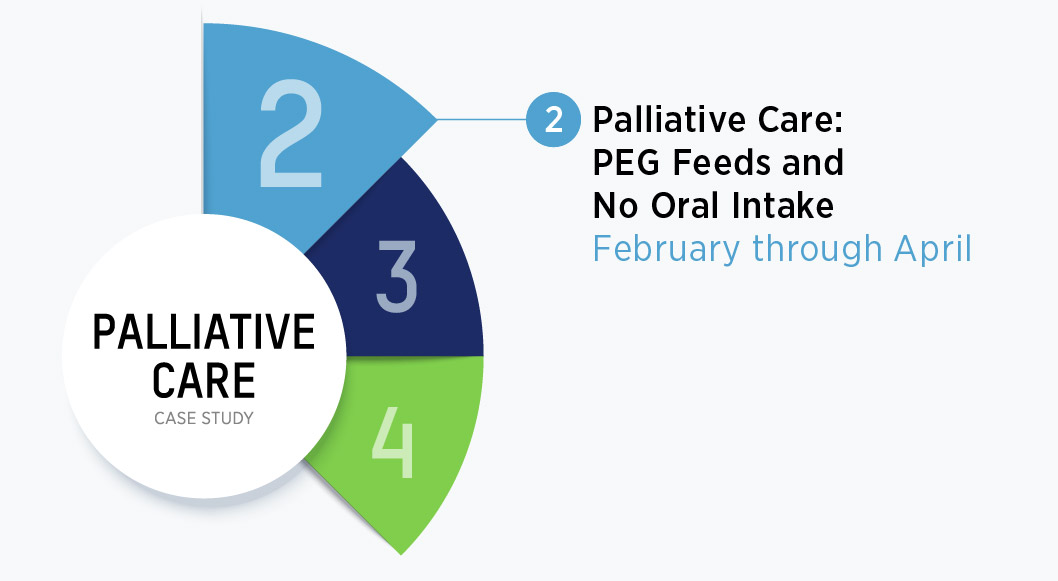Case 16 addresses the Nutrition Care Process during palliative and hospice care. The four phases of Lillie's care reflect the first four of the five phases of palliative care described in Table 2: Classification of the phases of palliative care and the role of the dietitian in the case Perspective. As you work through the information below, consider the dietitian's focus during Phase 2 of Lillie's progress. What are the key issues for consideration in terms of nutrition care? What questions will the patient and her caregiver be asking?
During this period of her care, Lillie is unable to tolerate medical intervention for her cancer. See HERE for Lillie's medication list.
Lillie manages occasional mouthfuls of pureed cooked foods such as apple sauce and milk pudding. She is tolerating two, 250 mL cans of 2 Cal/mL enteral feed daily (see Formula Information) with 6 x 60 mL water flushes. She experiences ongoing nausea, vomiting and reduced appetitie. Her constipation has been resolved with fiber capsules and laxative medication.
As noted in Table 2: Classification of the phases of palliative care and the role of the dietitian in the Perspective, during Phase 2 of the palliative care progression, the patient becomes unstable and there emerges an urgent need to alter the treatment plan because the existing care plan no longer satisfies the patient's requirements.
In Lillie's case, she is no longer able to tolerate 3 cans of feed daily. Her enteral feed intake is now providing 50% of her estimated daily requirements. Her fluid intake has reduced to 700 mL of water and is no longer tolerating apple juice.
Lillie maintains that she wants to remain at home for the final months of her life. She has been informed that as a hospice patient, she is eligible for a hospital bed in her home. She will also have access to hospice care workers to assist her and her caregiver, Evelyn.
Evelyn has been feeling increasingly uncomfortable with the increased level of responsibility in caring for Lillie. She is also worried about Lillie being alone during the night and she is concerned that the enteral feeds are not providing sufficient nutrition. She plans to gather support from Lillie's friends, and ask them to take turns spending the night sleeping on the couch in the living room to keep her company and to provide care, e.g. assistance with toileting.
The dietitian is required to conduct a home health visit and report to the Palliative Team with an assessment of Lillie's nutrition status and a plan for her nutrition care.
CLICK HERE TO ACCESS PHASE 2 ACTIVITIES.
CLICK BELOW TO NAVIGATE THE PHASES.




.png)


.png)